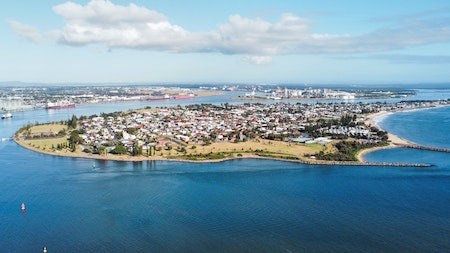Carl Coetzee, CEO of bond origination firm, BetterBond
“What we traditionally saw as vacation destinations are becoming the new hotspots in real estate. Remote working has irrevocably changed the way we live. In what has been dubbed the semigration trend, city dwellers are making the most of work-from-home scenarios by moving to smaller towns, in search of better quality lifestyles for their families. According to Lightstone property data for March, house prices in the North West, Mpumalanga and Eastern Cape have been growing at increasing rates and they now top provincial growth.
The semigration movement is also seeing a reinvigoration of many coastal towns themselves, inhabited largely in the past by retirees, and which are now experiencing an influx of younger families who were previously tied logistically to lives in big cities. Smaller coastal cities such as Port Elizabeth and East London have also seen a surge in sales, with Nelson Mandela Bay taking the spot of being the leading metro currently in the residential housing market.
Had COVID-19 happened just a few short years ago, this acceleration to remote working would not have been possible. But technical advancements in internet connectivity now enable a cyber office environment that will see increasing numbers of people able to choose exactly where they want to live.
We are on an interesting trajectory in the property market, and one that may be a huge stimulus not just for coastal towns, but for small towns across South Africa.”
Dance in Mexico, from your home
Hayley van der Woude, MD of PR and Digital agency, Irvine Partners
“With people retreating to their homes and staying behind closed doors now more than ever before, new ways of travel have emerged over the last few months that allow would-be travelers to transport themselves somewhere else entirely without even leaving their homes. We've seen our travel clients become exceptionally creative in what they offer and how they offer it. Cape Town Tourism, for example, sent a love letter to the world with its "We Are Worth Waiting For" campaign, while Airbnb launched the Online Experiences, to digitally explore the world.
With Online Experiences, would-be virtual travellers can book activities such as a cooking class in Italy, a dance class in Mexico, meditation sessions in India, learning about magic in the UK and so much more. This virtual way of meeting new people from other parts of the world also provides a way for people to use their skills and hobbies to earn an additional source of income.”
The new way of working
David Seinker, CEO of The Business Exchange
“As offices slowly start reopening, any company expecting their staff to flock back happily is likely to be in for a shock. After a year of working remotely from the comfort of home, the “old normal” suddenly doesn’t seem very attractive, especially if it means crowded office spaces that are less than comfortable and not conducive to optimal productivity.
It’s a dilemma many employers are facing: how to entice employees to return to the office? Opening the workplace in a hybrid capacity seems to be the most plausible option, but even in that scenario, there’s still the question of how to make the office more appealing than workers' homes.
Workplace changes that have been accelerated by the pandemic are going to demand offices that are overhauled and upgraded, with greater emphasis on employee safety, well-being, productivity and comfort. In a nutshell, to encourage people back, office design will need to undergo the kind of revamp that offers staff the benefits of a changed environment.
Office redesigns can be costly, so a smart solution is to rent less, but still high-quality office space. And serviced office space is a very appealing option. The trendier cousin of the co-working space, it’s grabbing the attention of corporates and global brands seeking the flexibility of a co-working space, but the professionalism of a more traditional set-up.
The office will continue to have importance as a place to come together for a common purpose, and for particular activities. Work is a social activity, and being in the office gives employees access to people and tools needed to collaborate effectively. Tasks such as critical decision making, counselling, training and social interaction will all suffer when attempted remotely. But, for staff to feel safe, companies will need to don their new office-design hats at the post COVID-19 party.”
Book gardeners online
Aisha Pandor, CEO of SweepSouth, an on-demand home services platform
“During the first stages of lockdown last year, our home-cleaning service was unable to operate. It was a challenging situation, but rather than getting despondent, we decided to use the time to extend our core service offering to outdoor services, such as gardeners, electricians, handymen, painters and more.
In the past, people relied on word-of-mouth references for many of these services, particularly gardeners. Now you can go online and swipe through the profiles of different gardeners, reading a short bio on each and checking their customer rating.
There’s also a chat and bot capability that allows customers to connect directly with professionals in their area, and has an image recognition feature that allows users to take a picture of a household area or broken item so that, using artificial intelligence technology, the system can identify which service professional a user would require to help fix the problem. It’s resulted in a whole new market for us, with a 25% year-on-year increase in the number of men booking the services of gardeners, pool cleaners and help with heavy lifting.”
Carl Coetzee





